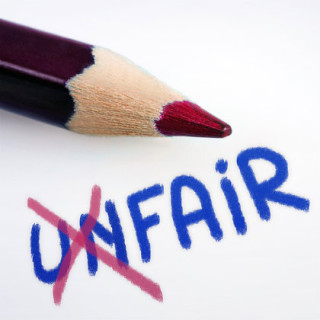Editor’s note: In light of Kathy Trauger’s post today, we thought we’d reprise a column Greg Dale wrote for the Planning Commissioners Journal some years back. It’s still a timely piece — and offers some perspectives on the development review process, though Greg’s focus is on the challenges neighborhood residents can face in dealing with a proposed project.
We hope you’ve also had the chance to read Ben Frost’s recent post, “Ma’am, We’re Here for You,” which asks the question: just who does the planning commission serve?
Public participation is more than just something that has to be inserted at a particular place into the process in order to satisfy the letter of the law.
It is common for communities to encourage developers to meet with staff before they file their application, whether it be for a zone change, planned unit development approval, or subdivision approval. This preapplication conference is intended to allow staff to give preliminary reactions and guidance to the developer so that issues of concern can be taken into account. This step is generally followed by the formal application itself.
Many planning commissions then schedule what are popularly known as “work sessions,” which are informal sessions where the application is discussed and the developer is present to answer questions. These are usually open to the public. Based on this work session, changes are often made to the development proposal to address the concerns of the planning commission.
Following this step, the formal planning commission hearing is held. A presentation of the proposal is made by the developer and the public is given an opportunity to comment. Additional changes are again made to the development plan to address concerns that were raised at the hearing. Finally, the planning commission will make its decision or recommendation.
This process appears to allow for a reasoned and rational consideration of a development proposal, and seems fair to all parties. But is it really fair?
Let us look at this process from another perspective. Assume that you are a home owner in the immediate vicinity of the development proposal. You are well informed on local affairs, but don’t make it a habit to attend all planning commission meetings or regularly monitor the process.
One day you receive a notice of a development proposal in your area, informing you that a public hearing has been scheduled before the planning commission. Assume that you are even more thorough than the average resident and decide to go to City Hall to review the development application. When you speak to staff, however, you learn that the developer is in the process of revising the development plans; in other words, the plan on record is not current or accurate.

You then attend the planning commission public hearing. As the meeting unfolds, you learn that the developer has not only been meeting with the staff, but has already appeared before the planning commission in an informal meeting where no notice was given to nearby residents. What with the staff and the developer being on a first name basis and the planning commission asking questions based on their previous review, you get the clear impression that you’ve missed something. On top of that, you’ve had no chance to review the current plan prior to appearing at the hearing. All you see are drawings pulled out during the hearing.
From your perspective, the developer has had numerous opportunities to convince staff and planning commission of the merits of its proposal, while you, and your neighbors, have not had a chance to provide any sort of meaningful comment.
Now let’s consider the situation outlined above. It’s understandable why a member of the public would be upset. While it may be impossible — as well as unnecessary — to involve all potentially affected parties in all meetings along the way, it is critical for a planning commissioner (and planning director) to remember that public participation is more than just something that has to be inserted at a particular place into the process in order to satisfy the letter of the law.
The planning commission should be sensitive to the difficult job that residents have in trying to give meaningful comments.
The planning commission should be sensitive to the difficult job that residents have in trying to give meaningful comments and patient with the fact that neighborhood groups are often not as familiar with the “rules of the game” as are developers — though of course there are exceptions.
As a planning commissioner, you have an ethical obligation to make the process as fair as possible to all the players. That may mean giving more than the legal minimum in terms of notice. It may mean longer meetings. But it will also mean that residents feel they have been treated fairly by the planning process.
This article was originally published in the Planning Commissioners Journal’s May/June 1992 issue.
C. Gregory Dale, FAICP, is a founding Principal with McBride Dale Clarion, the Cincinnati affiliate office of Clarion Associates. He has managed planning projects throughout the country, and is also a frequent speaker at planning and zoning workshops and conferences.
Between 1991 and 2009, Dale authored 31 articles for the Planning Commissioners Journal, including 21 for our Ethics & the Planning Commission series, and others on a variety of transportation and zoning topics. Dale is also a co-author of The Planning Commissioners Guide (American Planning Association, 2013).